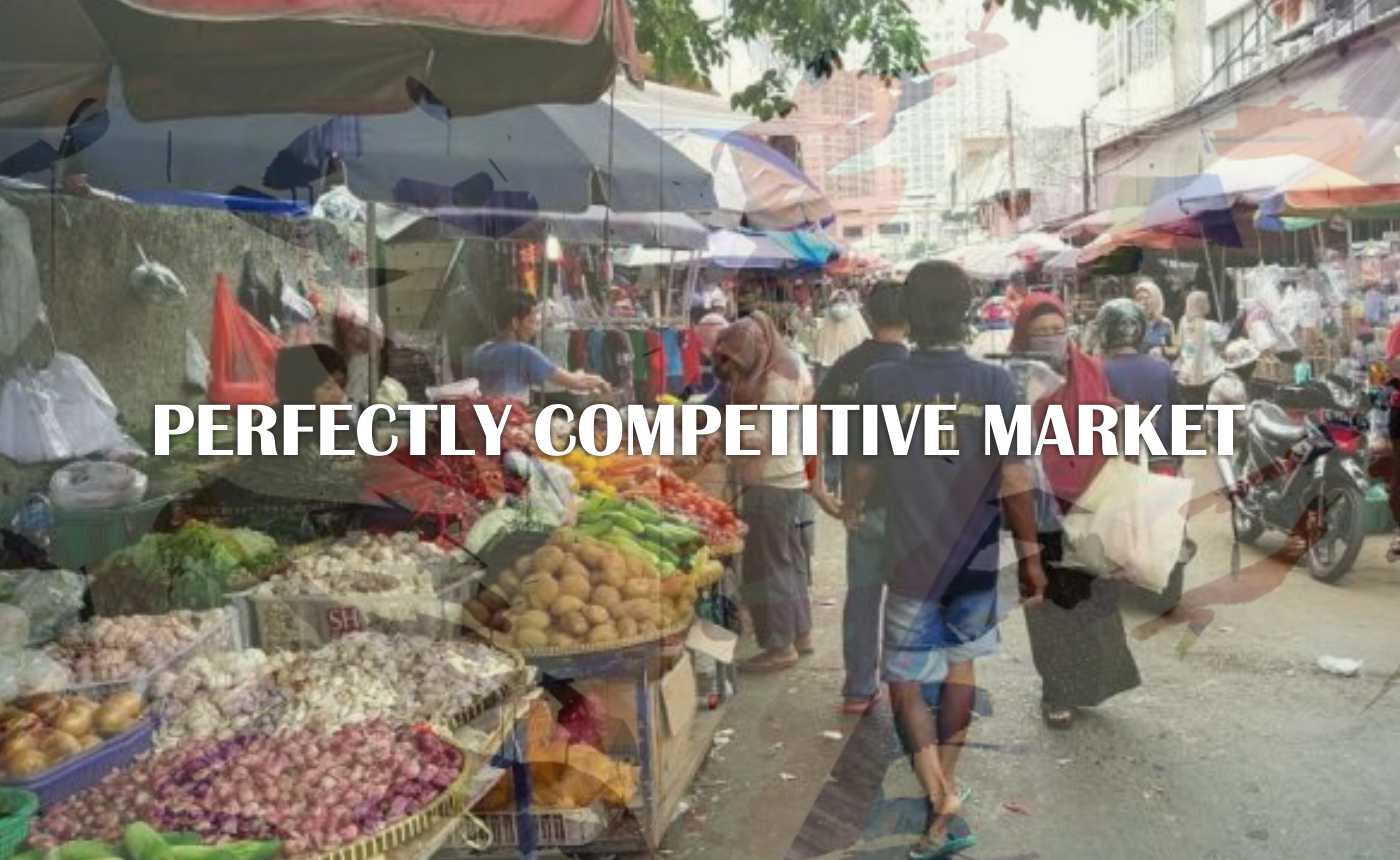In general, a perfectly competitive market is a market structure in which a large number of buyers and sellers are present. And all of them are involved in buying and selling homogeneous products at a single price prevailing in the market.
In other words, perfectly competitive market is also referred to as pure competition, there is no direct competition between market participants. and all sell identical products for a single and equal price.
Advantages of Perfect Competition
You can see an explanation of the characteristics of a perfectly competitive market in this article. In addition, here are the advantages of a perfectly competitive market:
a. Due to perfect knowledge among market participants, there is no misinformation and product knowledge is shared equally among all market participants.
b. There are no barriers to entering a perfectly competitive market, so existing firms cannot gain the power to monopolize the market.
c. There is no need to spend money on advertising, because the products sold are homogeneous, there is perfect knowledge of information, and companies can sell everything they can produce.
d. There are two possibilities, namely the benefits to consumers and economic welfare.
e. The formulation P (Price) = MC (Cost Margin) and MC = ATC (Average total cost) will occur. This means that production efficiency is well pushed and producers will improve the quality of the products they sell.
Disadvantages of Perfect Competition
In addition to the advantages of a perfectly competitive market, there are some disadvantages as well, namely:
a. Because the goods sold are homogeneous, consumers feel limited in buying other products outside the homogeneous goods.
b. It is very difficult to market a product whose brands are not that big or are not on a homogeneous product list.
c. Limiting producers in innovating for product development because they are too satisfied and comfortable to produce homogeneous goods.
How Realistic is the Manifestation of Perfectly Competitive Markets in the Real Business World?
Realistically, there are very few markets or industries in the world that are perfectly competitive. For example, how can a company create a homogeneous product given that even the smallest companies engaged in manufacturing or services try to differentiate their products from other companies.
The assumption that producers and consumers act rationally in a perfectly competitive market has been questioned by behavioral economists. A number of studies have shown that decision making by market participants is often irrational.
Decision making can be biased and subjective when consumers and producers are faced with complex situations. This can be an interesting lesson .
While a perfectly competitive market may be labeled unrealistic by some economists, this model still holds true in two respects; First, many primary commodity markets such as coffee and tea represent some of the characteristics of a perfectly competitive market.
Such as the number of individual producers that exist, and their inability to influence market prices. Second, for other markets in manufacturing and services, the perfectly competitive market model is a useful benchmark against which economists and regulators can evaluate the level of competition in real markets. Also read our article The Concept of Demand and Supply in Economics.
Conclusion
Following is a brief review of the advantages, disadvantages, and criticisms of a perfectly competitive market. Whatever the market conditions, every market participant wants to benefit from their business.
To achieve this, one of the steps that must be taken by each company or business person is to create a good accounting system for the company’s internal smoothness, comprehensive recording and reporting of each business transaction.

